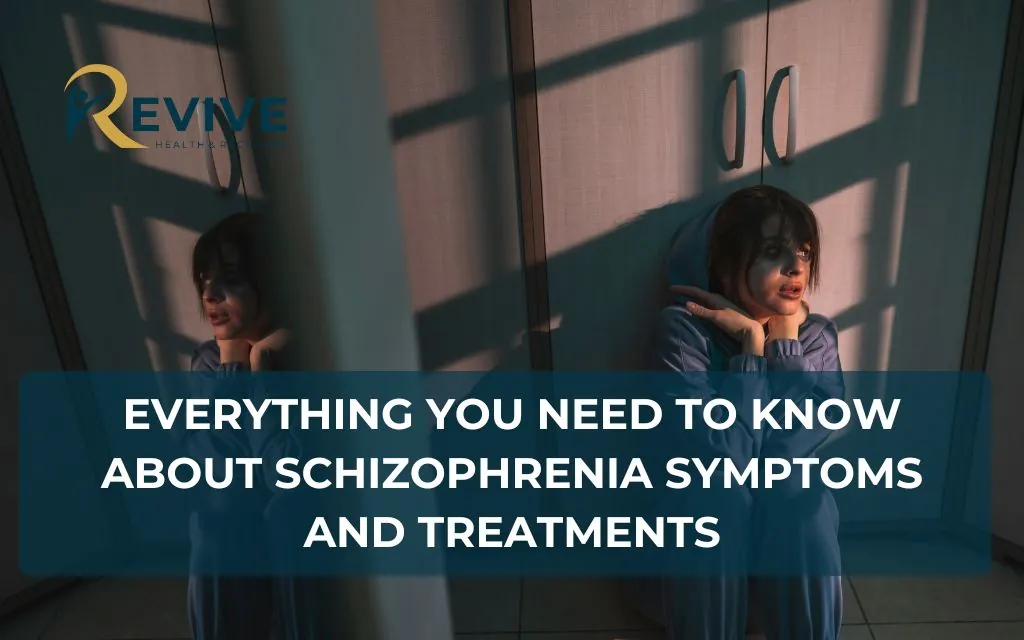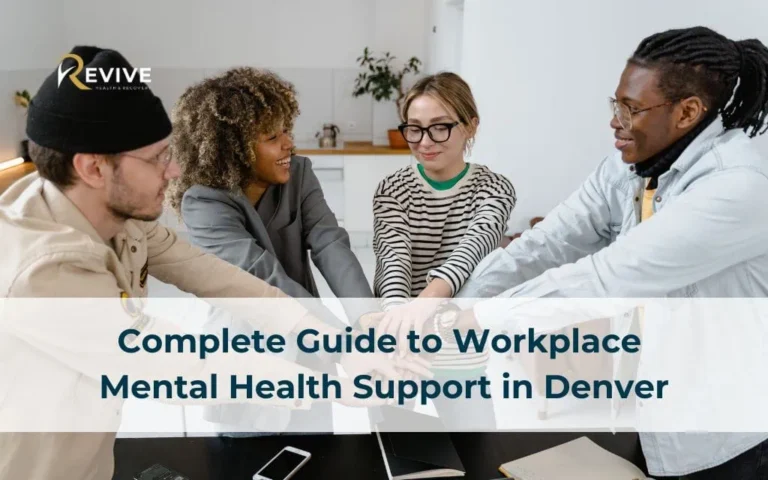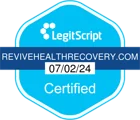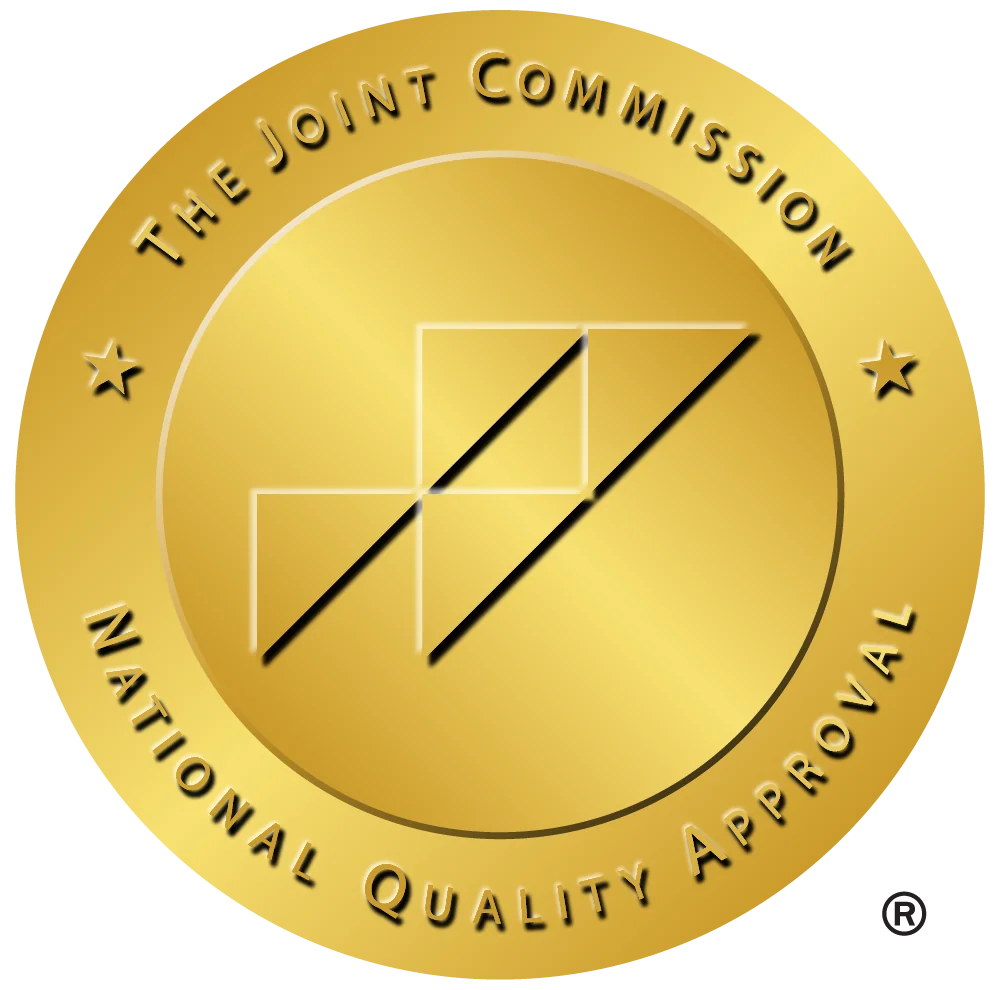Schizophrenia is a complex mental health condition that can disrupt thinking, emotions, and behavior, but with the right treatment, individuals can lead fulfilling lives. In Colorado, understanding the signs of schizophrenia and accessing effective mind healing techniques is crucial for managing the condition. Symptoms like hallucinations, delusions, and cognitive challenges can be overwhelming, but early intervention and a comprehensive treatment plan can make a significant difference.
In this article, we’ll dive into the key signs of schizophrenia, explore the latest solutions, and highlight the support systems available in Colorado. Whether through therapy, medication, or holistic mind healing approaches, there is hope for those living with schizophrenia.
What is Schizophrenia? Understanding the Basics
Schizophrenia is a serious mental illness that affects approximately 0.25% to 0.64% of U.S. adults. This complex condition interferes with a person’s ability to think clearly, manage emotions, make decisions, and relate to others. Despite common misconceptions, schizophrenia is not a split personality disorder or the result of poor parenting.
Schizophrenia is characterized by a range of symptoms that typically first appear in late adolescence to early adulthood (late teens to early 30s), though onset can occur at any age. It’s a chronic condition that requires lifelong management through medication, therapy, and support systems.
Prevalence in Colorado and the United States
While national statistics indicate that about 1 in 100 Americans live with schizophrenia, Colorado faces unique challenges in addressing mental health conditions. The state’s distinct urban-rural divide creates disparities in access to specialized schizophrenia care, particularly outside major cities like Denver and Boulder.
Impact on Individuals, Families, and Communities
Schizophrenia impacts not only those diagnosed but also their families and communities. Without proper treatment, individuals may struggle with employment, relationships, and independent living. Families often become caregivers, navigating complex healthcare systems while providing emotional support. Communities bear both the social and economic costs of untreated mental illness.
Signs and Symptoms of Schizophrenia
Schizophrenia symptoms typically fall into three categories: positive symptoms (additions to normal behavior), negative symptoms (reductions in normal behavior), and cognitive symptoms (problems with thinking).
Positive Symptoms: Hallucinations, Delusions, and Thought Disorders
Positive symptoms represent an excess or distortion of normal functions:
Disorganized or abnormal movements: From childlike silliness to unpredictable agitation.
Hallucinations: Seeing, hearing, feeling, smelling, or tasting things that aren’t there. Auditory hallucinations (hearing voices) are most common.
Delusions: Fixed false beliefs that persist despite evidence to the contrary. These might include paranoid delusions (believing others are plotting against you), delusions of grandeur, or delusions of reference (believing random events relate specifically to you).
Disorganized thinking: Difficulty organizing thoughts, connecting concepts logically, or maintaining a coherent conversation.
Negative Symptoms: Reduced Emotional Expression and Motivation
Negative symptoms represent a diminishment or absence of normal behaviors:
- Flat affect: Reduced expression of emotions through facial expressions or voice tone.
- Reduced speaking: Saying very little or providing minimal responses.
- Anhedonia: Inability to feel pleasure.
- Withdrawal from social activities and relationships.
- Loss of motivation: Difficulty beginning and sustaining activities.
- Neglect of personal hygiene and self-care.
Cognitive Symptoms and Their Impact on Daily Functioning
Cognitive symptoms affect thinking abilities and can be subtle or severe:
- Poor executive functioning: Difficulty understanding information and using it to make decisions.
- Trouble focusing or paying attention
- Problems with working memory: Difficulty using information immediately after learning it.
- Slow thinking and processing
These cognitive challenges often have the most significant impact on daily functioning, affecting a person’s ability to work, study, live independently, and maintain relationships.

Early Warning Signs to Watch For
Early intervention can significantly improve outcomes, making it crucial to recognize warning signs such as:
- Social withdrawal or isolation
- Declining performance at work or school
- Unusual or exaggerated beliefs
- Increased suspicion of others
- Sleep disturbances
- Difficulty concentrating
- Decreased personal hygiene
- Unusual speech patterns or content
In Colorado, awareness of these early indicators is particularly important due to the state’s high rates of substance use, which can sometimes mask or exacerbate early psychotic symptoms.
Who Needs Treatment for Schizophrenia?
Identifying Who Should Seek Professional Help
Anyone experiencing symptoms of schizophrenia should seek professional evaluation. This includes:
- Individuals experiencing hallucinations, delusions, or disorganized thinking
- People with significant changes in behavior, social functioning, or self-care
- Those with a family history of schizophrenia who notice concerning mental health changes
- Individuals using substances who experience persistent psychotic symptoms
- People whose symptoms interfere with work, school, or relationships
Early intervention is crucial, as research shows that shorter duration of untreated psychosis leads to better long-term outcomes.
Risk Factors Among Colorado Residents
Colorado residents may face unique risk factors for developing schizophrenia or experiencing more severe symptoms:
- High altitude effects: Colorado’s high altitude may impact medication metabolism, potentially requiring dosage adjustments for antipsychotic medications.
- Cannabis accessibility: With legalized cannabis, Colorado has seen research on its impact on psychosis and schizophrenia-related emergency department visits, particularly among young adults.
- Geographic isolation: In rural Colorado areas, isolation can delay recognition of symptoms and access to care.
- College population: Denver and Boulder’s large student populations may be at risk due to the typical age of onset coinciding with college years.
Impact of Untreated Schizophrenia
Without proper treatment, schizophrenia can lead to:
- Worsening symptoms and decreased functioning
- Substance abuse as self-medication
- Housing instability or homelessness
- Higher risk of suicide (10-15% of individuals with schizophrenia die by suicide)
- Physical health complications
- Legal issues due to behavioral disturbances
- Strain on family relationships and support systems
Special Considerations for Youth and Young Adults
Young people experiencing first-episode psychosis require specialized care. Colorado’s innovative Ascent programs specifically designed for first-episode psychosis (FEP) in youth and young adults ages 15-29 provide comprehensive, age-appropriate treatment that can significantly improve long-term outcomes.
When to Get Treatment for Schizophrenia
Importance of Early Intervention
Research consistently shows that early intervention leads to better outcomes in schizophrenia. Ideally, treatment should begin at the first signs of psychosis. The longer psychosis goes untreated, the more difficult recovery becomes. Early treatment can:
- Reduce symptom severity
- Improve response to medication
- Minimize disruption to development, education, and career
- Preserve social skills and relationships
- Reduce risk of suicide and hospitalization
Recognizing Crisis Situations
Certain situations require immediate intervention:
- Severe paranoia leading to unsafe behavior
- Suicide threats or attempts
- Inability to care for basic needs like food and shelter
- Aggressive behavior due to delusions or hallucinations
- Severe disorganization that puts the person at risk
In crisis situations, Colorado residents can contact the Colorado Crisis Services at 1-844-493-TALK (8255), text “TALK” to 38255, or visit their 24/7 walk-in centers throughout the state.

Colorado’s Early Intervention Programs: The Ascent Advantage
Colorado’s Ascent programs represent a national model for early intervention in psychosis. These specialized programs serve youth and young adults ages 15-29 experiencing their first episode of psychosis with a comprehensive approach including:
- Coordinated specialty care teams
- Low medication doses tailored for first episodes
- Individual resiliency training
- Family education and support
- Educational and vocational services
- Peer support from others in recovery
The Ascent approach has shown impressive results, helping young people maintain educational and career trajectories while managing their illness.
Breaking Through Denial and Stigma Barriers
Sometimes the biggest barrier to treatment is stigma or denial about symptoms. Approaches that help overcome these barriers include:
- Education about schizophrenia as a biological brain disorder
- Family intervention and supportive conversations
- Connecting with peers who have successfully managed similar symptoms
- Focusing on specific problems (like trouble sleeping or anxiety) rather than diagnostic labels initially
- Emphasizing how treatment can help achieve personal goals
Colorado’s progressive mental health community has developed innovative anti-stigma programs that help individuals and families overcome barriers to seeking help.
Types of Schizophrenia and Related Disorders
While the diagnostic classification of schizophrenia has evolved, understanding different symptom patterns can help in recognizing the condition.
Paranoid Schizophrenia
Formerly a specific diagnostic subtype, paranoid schizophrenia is characterized by:
- Prominent delusions, often persecutory or referential
- Auditory hallucinations related to delusional themes
- Relatively preserved cognitive function and affect
- Higher functioning in daily activities compared to other types
Many patients treated at Colorado’s specialized facilities like Colorado Recovery in Boulder and West Pines Behavioral Hospital in Westminster present with predominantly paranoid symptoms.
Disorganized Schizophrenia
Previously called hebephrenic schizophrenia, this presentation features:
- Disorganized speech and behavior
- Inappropriate affect (laughing or becoming emotional without apparent reason)
- Significant difficulty with daily activities and self-care
- Less prominent hallucinations or delusions
Catatonic Schizophrenia
This less common presentation involves:
- Extreme motor symptoms ranging from immobility to excessive movement
- Peculiar voluntary movements, posturing, or facial expressions
- Echolalia (repeating others’ words) or echopraxia (mimicking others’ movements)
- Periods of extreme unresponsiveness alternating with agitation
Colorado’s psychiatric facilities have specialized protocols for treating catatonic states with benzodiazepines and electroconvulsive therapy when necessary.
Schizoaffective Disorder and Related Conditions
Several conditions share features with schizophrenia but have distinct diagnostic criteria:
- Schizoaffective Disorder: Combines symptoms of schizophrenia with either major depression or bipolar disorder
- Brief Psychotic Disorder: Psychotic symptoms lasting less than one month
- Schizophreniform Disorder: Symptoms lasting 1-6 months
- Delusional Disorder: Non-bizarre delusions without other schizophrenia symptoms
At Revive Health Recovery in Denver, our integrated treatment approach addresses the full spectrum of psychotic disorders with individualized care plans.
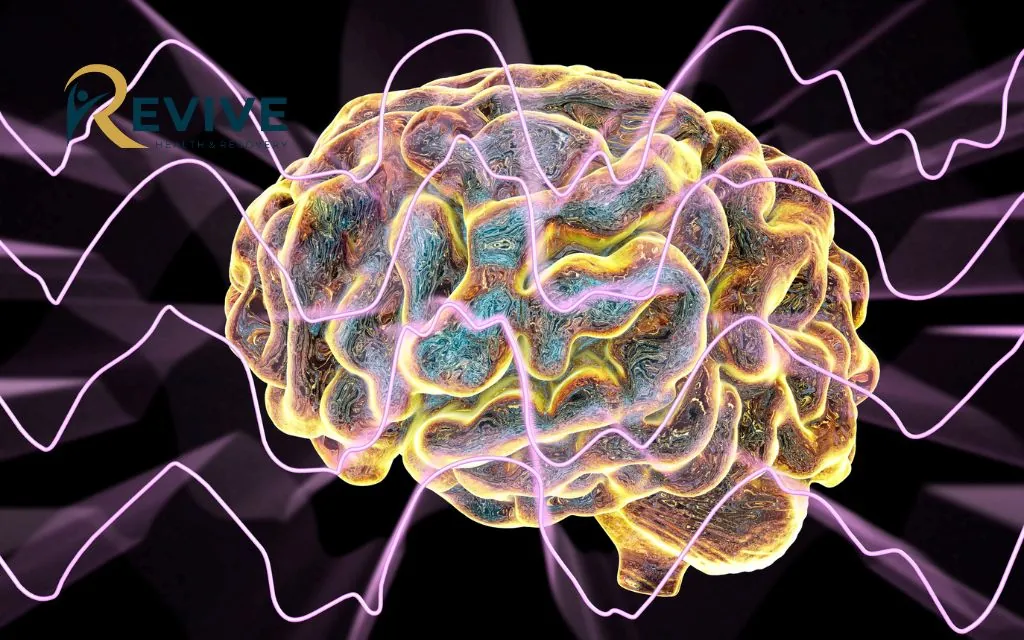
Causes and Risk Factors for Schizophrenia
Genetic Factors and Family History
Schizophrenia has a strong genetic component:
- Having a first-degree relative with schizophrenia increases risk by about 10%
- If both parents have schizophrenia, the risk rises to approximately 40%
- Multiple genes contribute to vulnerability rather than a single “schizophrenia gene”
- Genetic testing is not currently useful for clinical diagnosis
Brain Chemistry and Structure
Neurobiological factors play a significant role:
- Dopamine dysregulation: Most antipsychotic medications target dopamine systems
- Glutamate abnormalities: Another neurotransmitter system involved in schizophrenia
- Structural brain differences: Some people with schizophrenia show reduced gray matter volume and enlarged ventricles
- Disrupted neural connectivity: Problems with how different brain regions communicate
Research at CU Anschutz Medical Center is exploring deep brain stimulation (DBS) as a potential treatment for schizophrenia, advancing our understanding of the neurological basis of the condition.
Environmental Triggers and Stressors
Various environmental factors may trigger schizophrenia in genetically vulnerable individuals:
- Pregnancy and birth complications
- Childhood trauma or abuse
- Urban upbringing
- Military service or other highly stressful environments
- Cannabis use, particularly in adolescence
- Viral infections that affect brain development
Colorado-Specific Environmental Considerations
Colorado’s unique environment may influence schizophrenia development and treatment:
- High altitude effects: Colorado’s elevation may affect brain oxygen levels and medication metabolism, potentially influencing symptom expression and treatment response.
- Cannabis legalization: Since Colorado legalized recreational cannabis, research has examined connections between high-potency cannabis products and psychosis risk, particularly in young adults.
- Seasonal variations: Colorado’s dramatic seasonal changes may affect symptom patterns, as some research suggests seasonal influences on schizophrenia symptoms.
- Rural isolation: In remote mountain communities, isolation can exacerbate symptoms and limit access to specialized care.
Treatment Options for Schizophrenia in Colorado
Medication Management for Symptom Control
Medication is typically the foundation of schizophrenia treatment:
- First-generation (typical) antipsychotics: Control positive symptoms but may cause more movement-related side effects
- Second-generation (atypical) antipsychotics: Address both positive and negative symptoms with different side effect profiles
- Long-acting injectable medications: Monthly or bi-weekly injections that ensure consistent medication levels
- Clozapine: For treatment-resistant schizophrenia (approximately 30% of cases)
- Adjunctive medications: May include mood stabilizers, antidepressants, or anti-anxiety medications
Colorado providers, including Revive Health Recovery in Denver, offer specialized medication management services, with careful attention to how Colorado’s high altitude may affect medication metabolism.
Evidence-Based Psychotherapy Approaches
Psychotherapy complements medication in comprehensive treatment:
- Cognitive Behavioral Therapy for Psychosis (CBT-P): Helps identify and challenge delusional beliefs and develop coping strategies for hallucinations
- Family-Focused Therapy: Educates families and improves communication to reduce relapse risk
- Social Skills Training: Improves interpersonal functioning and community integration
- Cognitive Remediation: Addresses cognitive deficits through structured exercises
- Illness Management and Recovery: Teaches self-management skills and builds personal recovery goals
These therapies are available through Colorado’s community mental health centers and specialized providers like Revive Health Recovery, which emphasizes evidence-based approaches tailored to individual needs.

Residential Treatment Programs in Denver and Beyond
For more intensive support, Colorado offers several specialized residential options:
- Colorado Recovery in Boulder: Founded on the recovery model developed by Dr. Richard Warner, offering a holistic approach to severe mental illness
- West Pines Behavioral Hospital: Providing acute stabilization and transitional care
- Revive Health Recovery in Denver: Offering intensive outpatient programs with housing support
- The Phoenix Program (WellPower): Specializing in early intervention for psychosis
These programs provide structured environments where individuals can stabilize, learn skills, and prepare for community reintegration.
Holistic and Complementary Treatment Approaches
Beyond conventional treatments, complementary approaches may benefit some individuals:
- Nutritional interventions: Addressing vitamin deficiencies and promoting brain health
- Exercise programs: Improving physical health and reducing stress
- Mindfulness practices: Helping manage symptoms and enhance well-being
- Peer support: Connecting with others who understand the experience of psychosis
- Complementary therapies: Early research on CBD is being conducted in Colorado, where cannabis is legal, for potential benefits in managing schizophrenia symptoms
Revive Health Recovery integrates these holistic approaches with evidence-based treatments to address the whole person, not just their symptoms.
Navigating Mental Health Insurance for Schizophrenia in Colorado
Insurance Coverage Rights Under Colorado Law
Colorado residents benefit from strong mental health parity laws:
- Mental health conditions must be covered equivalent to physical health conditions
- Insurance cannot impose stricter limits on mental health services
- Prior authorization requirements must be comparable to medical services
- Colorado’s Behavioral Health Administration enforces these protections
Despite these protections, navigating insurance coverage can be challenging. Revive Health Recovery’s staff can help patients understand their benefits and advocate for appropriate coverage.
Medicaid/Health First Colorado Options
Health First Colorado (Colorado’s Medicaid program) provides comprehensive coverage for schizophrenia treatment:
- Medication coverage with minimal or no copays
- Therapy services without session limits when medically necessary
- Case management to coordinate care
- Crisis services
- Vocational support
- Peer support services
Eligibility expanded under the Affordable Care Act, making coverage available to more Coloradans with mental health needs.
Affordable Treatment Options for Uninsured Individuals
For those without insurance, Colorado offers several pathways to care:
- Community Mental Health Centers provide sliding scale fees
- Colorado’s Behavioral Health Safety Net program
- FQHCs (Federally Qualified Health Centers) offering integrated care
- Patient assistance programs for medications
- Support groups through NAMI Colorado and other organizations
If you’re concerned about affording treatment, please call Revive Health Recovery at (303) 268-4655 to discuss options. We believe financial constraints should never prevent someone from receiving needed care.
Prevention and Early Intervention Strategies
Reducing Risk Through Lifestyle Factors
While schizophrenia cannot be prevented entirely, certain approaches may reduce risk or severity:
- Avoiding cannabis and other substances, particularly during adolescence
- Stress management techniques to reduce environmental triggers
- Regular physical activity to support brain health
- Adequate sleep hygiene to maintain regular sleep patterns
- Nutritional support focusing on omega-3 fatty acids, antioxidants, and B vitamins
Importance of Stress Management and Support Systems
Stress can trigger or worsen psychotic symptoms. Effective stress management includes:
- Developing a regular routine
- Building a supportive social network
- Learning and practicing relaxation techniques
- Identifying and addressing specific stressors
- Creating a calm home environment
Colorado’s outdoor recreation opportunities provide excellent stress reduction options, from mountain hikes to urban parks.
Recognizing and Acting on Early Warning Signs
Most individuals experience a gradual change before acute psychosis. Recognizing personal warning signs might include:
- Changes in sleep patterns
- Increased anxiety or suspiciousness
- Difficulty concentrating
- Social withdrawal
- Decline in self-care
- Unusual perceptual experiences
Having a plan for responding to these warning signs can prevent full relapses. Revive Health Recovery works with clients to develop personalized early intervention plans.
Resources for High-Risk Individuals in Colorado
Colorado offers specialized resources for those at higher risk:
- Ascent Program: Early intervention for ages 15-29 experiencing first-episode psychosis
- NAMI Colorado’s Family-to-Family Education Program: For families of those with mental illness
- 988 Colorado Mental Health Line: Specialized crisis support
- Collegiate recovery programs: At major universities including CU Boulder and CSU
- Prevention and early intervention specialists at community mental health centers statewide
Supporting Someone with Schizophrenia
Effective Communication Strategies for Family Members
Supporting someone with schizophrenia requires specialized communication approaches:
- Use clear, simple language without metaphors or idioms
- Speak calmly, even when behaviors are concerning
- Focus on one topic at a time
- Avoid arguing about delusions or hallucinations
- Acknowledge the person’s feelings even if you don’t share their perceptions
- Listen without judgment
- Balance support with encouraging independence
Creating a Supportive Home Environment
The home environment significantly impacts symptom management:
- Establish consistent routines and expectations
- Reduce sensory stimulation if it triggers symptoms
- Organize medications in easy-to-use systems
- Create quiet spaces for retreat during overwhelming moments
- Eliminate access to substances that may worsen symptoms
- Post important phone numbers and crisis contacts visibly
- Balance privacy with appropriate monitoring
Caregiver Self-Care and Support Groups in Colorado
Caring for someone with schizophrenia can be demanding. Colorado offers resources for caregivers:
- NAMI Colorado Family Support Groups: Free, peer-led groups throughout the state
- Family psychoeducation programs at major treatment centers
- Respite care services through community agencies
- Online support communities connecting caregivers across Colorado’s urban and rural areas
- Family therapy focusing on communication and problem-solving
Remember that self-care isn’t selfish—it’s necessary for sustainable caregiving.
Crisis Management Planning for Families
Preparing for potential crises is essential:
- Develop a written crisis plan with the treatment team
- Know the warning signs of decompensation
- Have current medication information readily available
- Save crisis line numbers (988 or Colorado Crisis Services at 1-844-493-8255)
- Understand involuntary treatment criteria in Colorado
- Practice de-escalation techniques
- Identify a safe place if home becomes temporarily unsafe
Revive Health Recovery works with families to develop comprehensive crisis management plans tailored to individual needs.

Living Well with Schizophrenia in Colorado
Recovery-Oriented Approaches to Treatment
Recovery goes beyond symptom management to focus on quality of life:
- Emphasizing personal strengths and resilience
- Setting meaningful life goals beyond illness management
- Building self-efficacy and confidence
- Developing a positive identity not defined by diagnosis
- Finding purpose through work, volunteering, or creative pursuits
Colorado’s Boulder was the site of important research comparing quality of life for schizophrenia patients across different treatment systems, helping establish recovery-oriented care as the standard.
Building a Comprehensive Support Network
Recovery thrives with robust support networks:
- Professional treatment team (psychiatrist, therapist, case manager)
- Family and friends
- Peer support specialists with lived experience
- Community organizations and faith communities
- Online communities and forums
- Vocational rehabilitation counselors
- Housing support providers
Education, Employment, and Housing Resources
Colorado offers specialized resources for major life domains:
- Supported education programs at community colleges and universities
- Individualized Placement and Support (IPS) employment services
- Supported housing ranging from group homes to independent apartments with visiting support
- Benefit counseling to understand how work affects disability benefits
- Ticket to Work program providing vocational rehabilitation
Maintaining Physical Health Alongside Mental Health
People with schizophrenia often experience poor physical health outcomes. Integrated approaches include:
- Regular primary care appointments
- Metabolic monitoring for medication side effects
- Smoking cessation support (rates of smoking are higher in this population)
- Nutritional counseling
- Exercise programs adapted to individual abilities
- Dental care coordination
5 Reasons to Choose Revive Health Recovery for Schizophrenia Treatment
Specialized Expertise in Schizophrenia and Co-Occurring Disorders
At Revive Health Recovery, we understand the complex interactions between schizophrenia and other conditions:
- Our clinical team specializes in treating psychotic disorders with the latest evidence-based approaches
- We address common co-occurring issues like substance use, trauma, and mood disorders
- Our providers stay current with the latest research and treatment innovations
- We understand Colorado-specific factors that impact treatment and recovery
Comprehensive, Personalized Treatment Plans
We believe no two individuals with schizophrenia are alike. Our treatment plans:
- Begin with thorough psychological and medical assessment
- Incorporate family input and personal goals
- Address medication, therapy, social, vocational, and wellness needs
- Adapt as needs change throughout the recovery journey
- Consider cultural factors and preferences
Supportive, Compassionate Environment in Denver
Our Denver location provides a healing space where:
- Staff approach each client with dignity and hope
- Peer support specialists share their recovery journeys
- Physical environment reduces stress and promotes calm
- Community connections help reduce isolation
- Family involvement is welcomed and encouraged
Integration of Evidence-Based and Holistic Approaches
We combine proven treatments with complementary approaches:
- Medication management with careful attention to minimizing side effects
- Individual and group therapy using CBT-P and other evidence-based models
- Family education and support
- Wellness activities including nutrition, exercise, and mindfulness
- Connection to community resources and support groups
Ongoing Support for Long-Term Recovery Success
Recovery from schizophrenia is a journey, not a destination. Our ongoing support includes:
- Relapse prevention planning
- Graduated levels of care as independence increases
- Community integration support
- Career and educational guidance
- Alumni programs and continued connection
FAQs About Schizophrenia: Warning Signs And More
What are the warning signs that someone might be developing schizophrenia?
Early warning signs include withdrawal from social activities, declining performance at work or school, unusual beliefs or magical thinking, increased suspicion of others, and deterioration in personal hygiene. Young adults showing these signs in Denver should seek evaluation at Revive Health Recovery, where our specialists can provide early intervention for better outcomes.
How is schizophrenia diagnosed and what should I expect during evaluation?
Schizophrenia diagnosis involves a comprehensive evaluation including medical history, psychiatric assessment, physical exam, and sometimes brain imaging or psychological testing. At Revive Health Recovery, our Denver specialists conduct thorough assessments in a comfortable, supportive environment, evaluating symptoms over time to ensure accurate diagnosis and appropriate treatment.
What emergency services are available in Denver for schizophrenia crisis situations?
Denver offers several immediate resources for mental health crises, including the 988 Colorado Mental Health Line, Colorado Crisis Services walk-in centers, and emergency psychiatric services at hospitals. Revive Health Recovery provides crisis support for clients and can guide families through emergency situations, helping coordinate appropriate care during schizophrenia-related crises.
How can family members best support a loved one with schizophrenia?
Family support is crucial for schizophrenia recovery. Effective strategies include educating yourself about the condition, maintaining open communication without judgment, encouraging medication adherence, recognizing warning signs of relapse, and connecting with support groups like NAMI Colorado. Revive Health Recovery offers family education programs to help you effectively support your loved one’s treatment journey.
What makes Revive Health Recovery’s approach to schizophrenia treatment different?
Revive Health Recovery stands out by providing truly individualized care that addresses the whole person, not just symptoms. Our Denver-based team includes specialists with extensive experience treating schizophrenia, offering a coordinated approach that combines medication management, therapy, family support, and practical life skills development. We understand Colorado’s unique treatment landscape and maintain a strong commitment to long-term recovery support beyond initial stabilization.
Conclusion
Seeking help for schizophrenia is a courageous decision. With proper treatment and support, many people with schizophrenia lead fulfilling lives, maintain relationships, and achieve personal goals.
At Revive Health Recovery, we provide comprehensive schizophrenia treatment in a supportive environment. Our team of experienced professionals works together to create individualized treatment plans addressing the unique needs of each client.
We believe in treating the whole person, not just the symptoms of schizophrenia. Our Colorado Group Emotional Support approach combines evidence-based treatments with compassionate care, focusing on building skills for long-term wellness.
Are you or a loved one struggling with schizophrenia? Take the first step toward recovery today by contacting Revive Health Recovery.
Address: 1427 S Federal Blvd, Denver, CO 802119
Email: contact@revivehealthrecovery.com
Call Us – Available 24/7: (303) 268-4655
